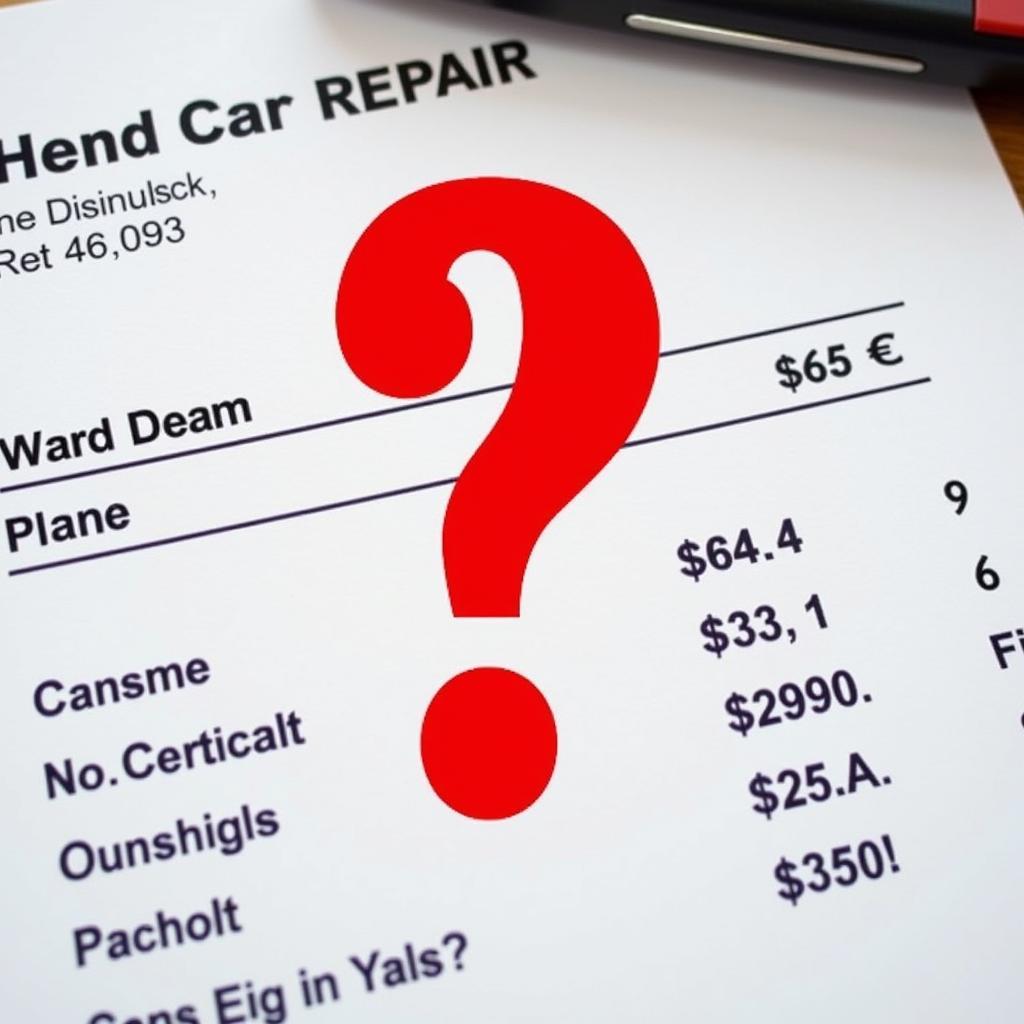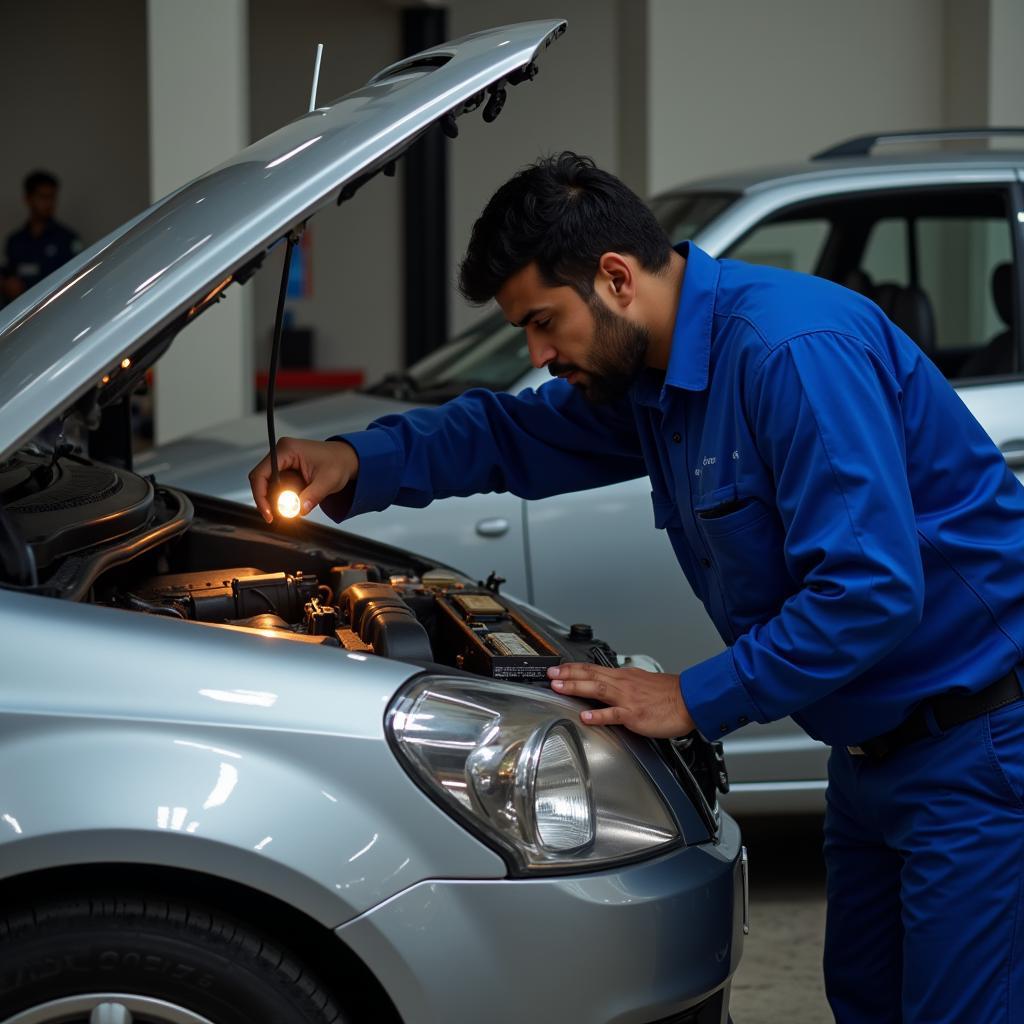Are Car Service Dealers Honest About Repairs?
Navigating the world of car repairs can feel like entering a labyrinth, especially when doubts cloud your mind about the honesty of car service dealers. It’s a common concern: “Are they telling me the truth about what my car really needs?” This uncertainty can lead to anxiety, frustration, and even financial strain.
 Car repair invoice with a question mark
Car repair invoice with a question mark
Let’s be honest, the automotive repair industry doesn’t always have the best reputation. Stories of unnecessary repairs, inflated prices, and shady practices abound, leaving many car owners feeling vulnerable and distrustful.
Unmasking the Myths: Separating Fact from Fiction
While it’s true that not all car service dealers operate with the highest ethical standards, it’s important to remember that generalizations can be misleading. Just as in any profession, there are honest, trustworthy mechanics, and then there are those who might take advantage of a customer’s lack of knowledge.
 Mechanic explaining a car problem to a customer
Mechanic explaining a car problem to a customer
The key to avoiding becoming a victim of dishonest practices is to be an informed consumer. Understanding common car problems, asking the right questions, and knowing your rights can empower you to make smart decisions about your vehicle’s maintenance and repairs.
How to Spot Red Flags and Ensure Honest Car Repairs
Knowledge is your best defense. Here are some tips to help you navigate the often-confusing world of car repairs with confidence:
-
Do Your Research: Before you even step foot in a repair shop, learn about your car. Understand its common problems, recommended maintenance schedules, and average repair costs. Websites like RepairPal and Kelley Blue Book can be valuable resources.
-
Get Multiple Opinions: Don’t be afraid to get a second, or even third opinion, especially if the diagnosis seems expensive or complex. A reputable mechanic won’t pressure you and will be transparent about their findings.
-
Ask for Explanations: Don’t hesitate to ask the mechanic to explain the problem in detail. What’s wrong? Why does it need to be fixed? What will happen if it’s not fixed? A trustworthy mechanic will welcome your questions and provide clear, understandable answers.
-
Request to See Old Parts: If a mechanic replaces a part, ask to see the old one. This can help you verify that the repair was actually necessary and that the part was genuinely replaced.
-
Understand Your Warranty: Familiarize yourself with your car’s warranty, including what’s covered and for how long. This can help you avoid paying for repairs that should be covered under warranty.
-
Get Everything in Writing: Before any work is done, get a written estimate that includes the cost of parts, labor, and any other fees. Make sure you understand and agree to the terms before authorizing any repairs.
 Woman signing car repair documents at a dealership
Woman signing car repair documents at a dealership
Empowering Yourself: Building Trust and Transparency
By being proactive and informed, you can significantly reduce the risk of encountering dishonest practices and ensure that your car receives the necessary repairs at a fair price. Remember, communication is key. Building a relationship with a mechanic you trust can make all the difference in ensuring the longevity and well-being of your vehicle.

